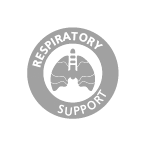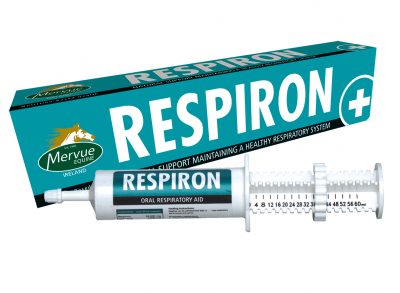- +353 21 422 0397
- info@mervue.ie
- Mon - Fri: 09:00 - 17:00
 Respiratory problems are common in horses and range from the head cold and dirty nose (upper airway disease) through to chronic lung conditions such as inflammatory airway disease (IAD or COPD). Irrespective of the cause, respiratory disease is an important cause of economic loss in horses due to days lost in training/competition and the veterinary costs associated with the medication of respiratory disease. IAD is considerably more common than signs of upper respiratory disease and in young racehorses has a mean monthly prevalence of around 12% and an incidence of around 10 cases/100 horses/month. The mean duration of each IAD episode is around 8 weeks, and the disease is often recurrent in individuals. The monthly prevalence and incidence of signs of upper respiratory disease are around 5% and 5 cases/100 horses/month respectively. Vaccination is critical for reducing the duration and severity of symptoms associated with equine influenza, however, there are several other bacteria that can be associated with respiratory disease that are not covered by vaccines.
Respiratory problems are common in horses and range from the head cold and dirty nose (upper airway disease) through to chronic lung conditions such as inflammatory airway disease (IAD or COPD). Irrespective of the cause, respiratory disease is an important cause of economic loss in horses due to days lost in training/competition and the veterinary costs associated with the medication of respiratory disease. IAD is considerably more common than signs of upper respiratory disease and in young racehorses has a mean monthly prevalence of around 12% and an incidence of around 10 cases/100 horses/month. The mean duration of each IAD episode is around 8 weeks, and the disease is often recurrent in individuals. The monthly prevalence and incidence of signs of upper respiratory disease are around 5% and 5 cases/100 horses/month respectively. Vaccination is critical for reducing the duration and severity of symptoms associated with equine influenza, however, there are several other bacteria that can be associated with respiratory disease that are not covered by vaccines.
 Respiratory problems are more likely to occur in horses that mix with other horses, horses that are transported, horses that are housed, those that are stressed and those that have underlying allergic respiratory conditions. One study reported that respiratory problems accounted for 33% of health problems associated with transport.
Respiratory problems are more likely to occur in horses that mix with other horses, horses that are transported, horses that are housed, those that are stressed and those that have underlying allergic respiratory conditions. One study reported that respiratory problems accounted for 33% of health problems associated with transport.
Stressed horses have a greater requirement for vitamin C (ascorbic acid) as they utilise increased amounts of vitamin C to protecting their bodies against the adverse effects of stress and these horses benefit from supplementation. Horses that are transported, stabled or tied up for extended periods of time don’t lower their heads like those that graze. Consequently, the natural drainage of mucous from the respiratory tract by gravity is compromised. Similarly, horses with allergic lung conditions or with compromised airway function (such as bleeders) have altered mucous clearance from their respiratory tracts and are more prone to secondary bacterial infections.
The aims of treatment of any respiratory condition are to address bacterial infections, provide additional support against damage to the respiratory tract, promote clearance of mucous from the airways and to support the immune system in fighting disease.
 RESPIRON paste is a real solution for horses with respiratory problems.RESPIRON paste containing echinacea is considered a common immunostimulant, or ‘cold fighter’ and has been reported to have anti-inflammatory and antioxidant properties, which protects cells against damage. Echinacea is typically used as an immune booster to complement a healthy immune system in horses. RESPIRON also contains various herbs garlic, rosemary, oregano which have anti-viral and antibacterial properties. Garlic also assists with thinning the mucous and making it easier for the horse to cough up. Seaweed extract contains vitamin C which is an anti-oxidant and has a wide range of antibacterial and anti-inflammatory effects.
RESPIRON paste is a real solution for horses with respiratory problems.RESPIRON paste containing echinacea is considered a common immunostimulant, or ‘cold fighter’ and has been reported to have anti-inflammatory and antioxidant properties, which protects cells against damage. Echinacea is typically used as an immune booster to complement a healthy immune system in horses. RESPIRON also contains various herbs garlic, rosemary, oregano which have anti-viral and antibacterial properties. Garlic also assists with thinning the mucous and making it easier for the horse to cough up. Seaweed extract contains vitamin C which is an anti-oxidant and has a wide range of antibacterial and anti-inflammatory effects.
RESPIRON is formulated as a paste and should be administered at a rate of 60ml orally, three days prior to an anticipated stressful event, transport or mixing with other horses. RESPIRON can be used as an aid in the long-term management of inflammatory airway when administered at a rate of 20ml/day.